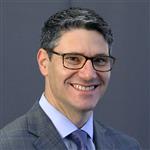As a GI fellow, life is dynamic and exciting, and after the long journey of medical training, the next step is in sight. From morning rounds to procedures and outpatient clinics to inpatient consultations, all the while pondering complex cases and sharpening our procedural skills, we realize we will soon be the ones teaching. This opportunity goes way beyond the day-to-day previously outlined here and is key to how we apply these skills on a foundation of humanism. As GI fellows, you can see the direct impact of your work, which may range from diagnosing cancer to simply explaining the difference between polyp types—a privilege that will continue throughout your career.
Where you decide to practice is a large determinant of how you will be able to employ your art of care delivery. To ensure your best chance, there are certain things to consider.
Set personal goals that go beyond fellowship graduation. Clearly define short- and long-term goals based on your personal experience and motivation.
Seek guidance from an experienced mentor who may help see around some of the corners you are blind to and can only learn from experience. Find a mentor who reflects the type of practice you are considering, whether it is private, community or academic-based.
Engage in leadership roles and teaching opportunities. This will enhance your professional skills and open future career opportunities.
All GI fellowship experiences are different, but there is one common feature that all must include: staying focused to understand GI fellowship allows us the opportunity to build a foundation to integrate scientific knowledge with a deep understanding of human experience and values.

Casey Chapman, MD, is the chief medical officer of GI Alliance and an actively practicing gastroenterologist in Baton Rouge, Louisiana.